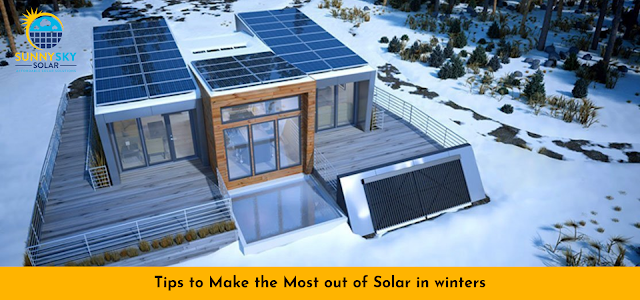Best solar charge controller
Today, solar energy is the cleanest and available renewable
source of energy. A photovoltaic module or solar panel system with the help of direct Sunlight and
transfer it to solar batteries by managing the voltage with the solar charge
controller. It helps in maintaining the voltage between the solar power system and the batteries.
As a result, you use the power in the form of correct voltage electricity.
The solar charge
controller manages the power supply in battery banks from the solar panels.
It ensures that the battery cells not overcharged during the day time, and
power doesn't go back into solar panels and drain the battery. There are some
advanced charge controllers come with the lightning and load control, but the
primary job is always to manage the power.
Types of the solar
charge controller
There are two types of charge controller technologies PWM and
MPPT.
Lower voltage of the battery can charge through a higher
voltage of the solar panel. Like a
20v of solar panel can charge a 12v of battery, or two series of 20v can charge
the 24v of battery, or three series of 20v can charge up to 48v of battery. It
opens up the full chances of a broader range of solar arrays that can use with
an off-grid solar power system.
Key features of the
solar charge controller
Ø It stops wastage of power supply.
The solar charge controller fulfills
the main reason for installing the solar power system, which is no to waste
electricity.
Ø Prevents battery from overcharging and draining by controlling voltages.
It maintains the power voltage of
current automatically; it prevents battery from draining and overcharging.
Ø It minimizes the chances of a short circuit by 99%.
The main fear of any electrical item
is a short circuit; the solar charge
controller maintains voltage, which minimizes the chances of any electrical
fault.
Ø Highly reliable.
Consistently good in quality, performance,
and trusted for low and high voltage electricity problem.
Ø Monitor all reverse power supply flow.
Mostly problem this occurs in solar
power systems is the reverse supply flow of power. The solar charge controller
helps in maintain that flow.
Uses of the solar
charge controller
1.
Power supply to battery banks.
Primary work of every solar charge controller, to charge and
supply power in properly.
2.
It controls the device voltage.
After the charging process, it takes care of proper
electricity voltage supply
3.
Auto indication of full and low
battery charge.
4.
Monitors the overload and minimum
voltage.
The solar charge controller monitors the overload and minimum
voltage power supply and makes it stable for use.
More about solar charge
controller
Lately, in the market of solar
power systems, the solar charge the controller comes with some new and advanced features, including the
increased capacity of operating the higher voltages to manage the larger
systems from before.
As we all know, moving towards solar energy is a good step but, setting up it in houses and
offices become risky without the whole setup, which includes solar inverters, batteries, and most important a
solar charge controller which controls the voltages and supply it properly for
the better use.
As I mentioned above, it prevents solar battery from many types of problems like overcharging and
reverse flow of electricity because of low and high voltages of power supply.
You cannot control Sunlight, as it travels from a long distance and direct
lands on the solar panel. To manage that potential energy, a solar charge controller is a mediator
between panel and battery, which helps in maintaining the voltage of power so
that we receive power in a perfect voltage for use.
Conclusion
By only installing a Solar
Panel Systemat your rooftop is not enough. For a better experience, you
have to install a perfect setup, which includes a solar panel, solar batteries,
solar inverter, and most important Solar
Charge Controller in Brisbane, QLD.That gives you the best power supply
without any electrical fault or short circuit.
Around half of the residential and commercials owners are
using Solar Power System in Brisbane. Sunny Sky Solar
offers a great range of solar power installer services, including solar panels,
solar inverters, solar batteries, and now in solar charge controller
etc.






Comments
Post a Comment